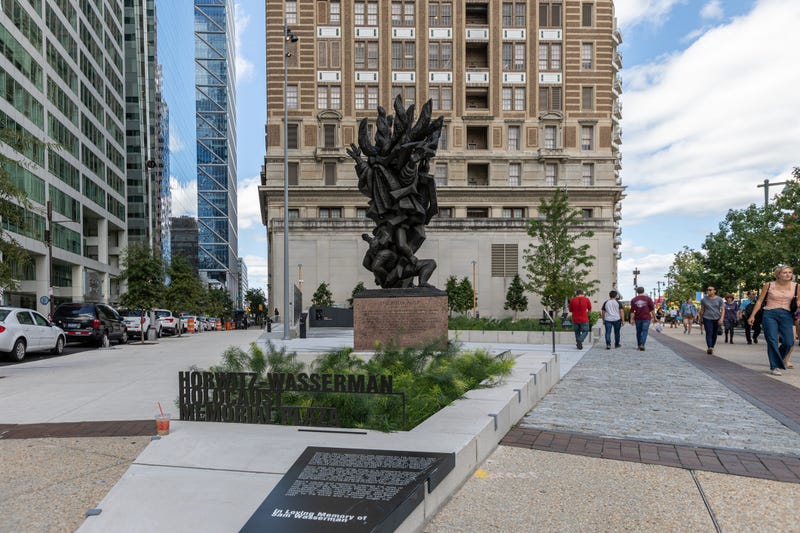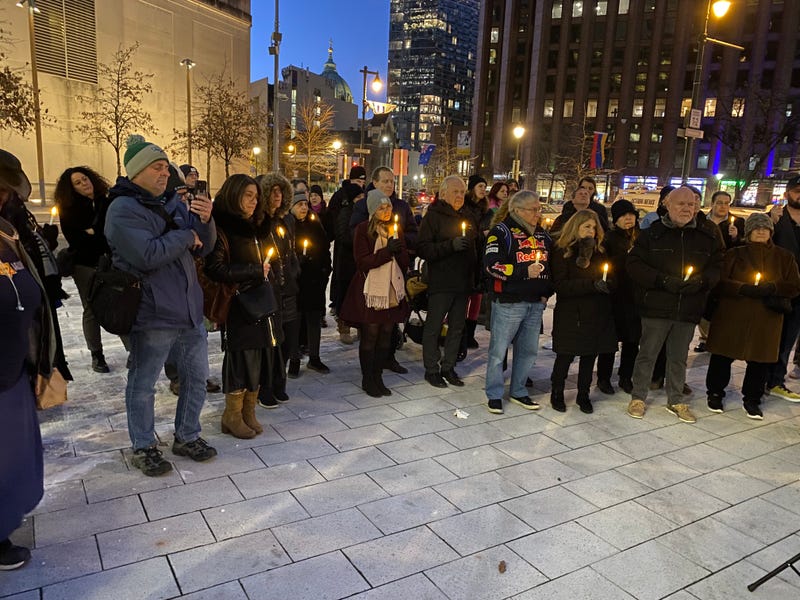
PHILADELPHIA (KYW Newsradio) — Jan. 27 marks the 80th anniversary of the liberation of Auschwitz. In 2005, the UN chose the date as Holocaust Remembrance Day. It is a time to reflect on the 6 million Jews and millions of others killed in Nazi death camps.
“This day commemorates the systematic persecution of 6 million Jewish people that, at the time, represented ⅔ of the European Jewish population,” said Eszther Kutas, executive director of the Philadelphia Holocaust Remembrance Foundation.
More than 50 people gathered Monday night for a candle-lighting at the Horwitz-Wasserman Holocaust Memorial Plaza (at 1619 Arch Street) hosted by the Philadelphia Holocaust Remembrance Foundation and nonprofit 3G Philly. There, people shared harrowing stories and placed pebbles on the pedestal of the Monument to Six Million Jewish Martyrs.
Many buildings in the city, including City Hall, were lit in yellow to mark the day, as well.
“We need to all come together from all political backgrounds and fight … antisemitism and racism together,” said Kutas.
We know about the industrialized mass murder of 6 million Jews, thousands of LGBTQ people and persons with disabilities, and millions of other people from other ethnic, religious and political minorities. However, do we understand why it happened?
“It's about the apathy that was really defining this historical era of the Holocaust, how people didn't use their voice to speak up against it, and that's what ultimately led to the extermination of millions of people,” Kurtas said.
Kutas said this day of remembrance is also an opportunity to learn, to teach, and to look at ourselves as a society.
“Antisemitism has been rising in the United States since 2014. As we look at our society today and we look at how antisemitism, racism and bigotry is rising, we really need to find a way to come together … to fight it together,” Kutas said.

“We really need to double down on education. … on how to combat contemporary antisemitism and think about the lessons of the Holocaust. We certainly don't want those horrible, dark periods to repeat again, and whether that's affecting Jewish people or other minorities, we are equally concerned.”
And for those who were unable to attend this or any other similar service in and around the city, Kutas has this advice:
“If you are unable to attend some of the public events that are available throughout the region, I really recommend that you take a candle and you light it, and you think about the people who have passed, and you take a minute to really reflect on how did we get there in the 1930s and the 1940s How did it all unfold? And reflect on what you see today and think about how you can use your voice to create a more enlightened and more tolerant society.”
